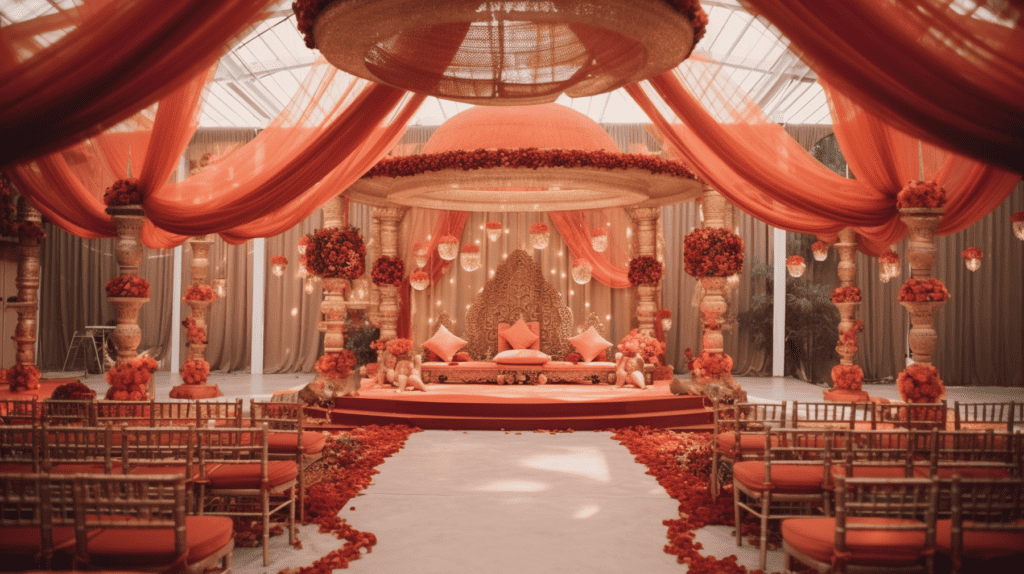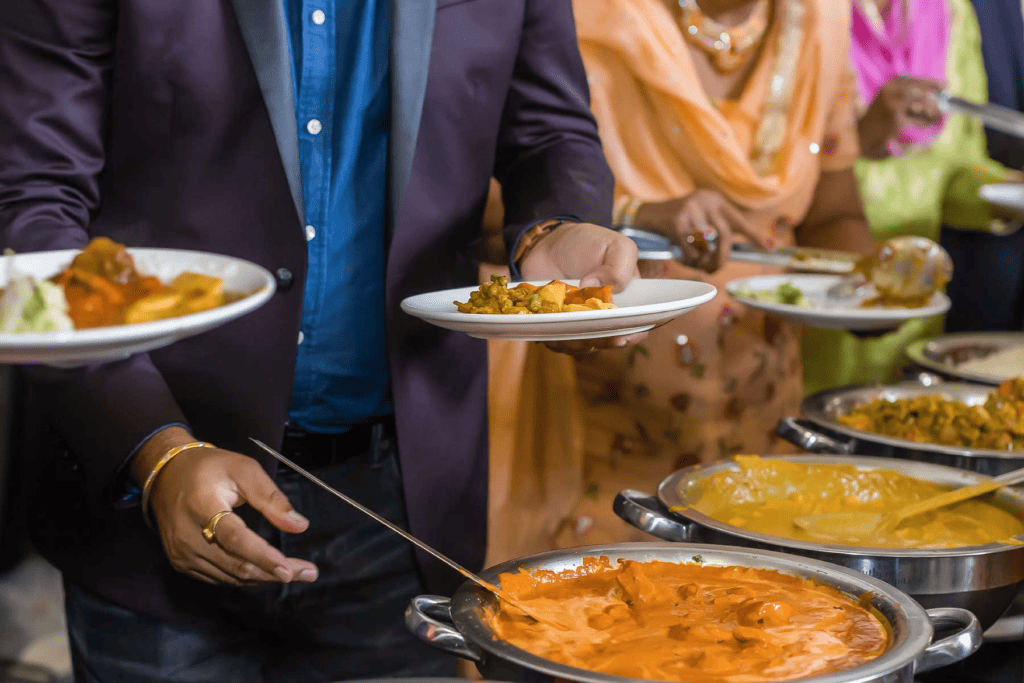Planning an event can be exciting and challenging at the same time, especially when it comes to choosing the right catering style. For lovers of Indian food, this decision is even more important. Whether it’s a wedding, a corporate event, or a special celebration, the choice between buffet and plated Indian catering is key to ensuring your guests enjoy the delectable flavours of Indian cuisine.
Key Takeaways
- Buffet-style catering is ideal for larger Indian weddings and events due to its flexibility, variety, and cost-effectiveness, while plated service caters to smaller, more formal gatherings requiring a sophisticated dining experience.
- Choosing the right Indian catering style involves considering the event’s size, formality, and guest preferences, with special attention given to balancing vegetarian and non-vegetarian options, including signature dishes and regional specialties.
- Hiring the right Indian caterer is crucial, which includes reviewing their experience, ensuring proper certification, and considering additional services they offer; meticulous planning and communication are essential for the success of the event.
Buffet vs. Plated: Pros and Cons
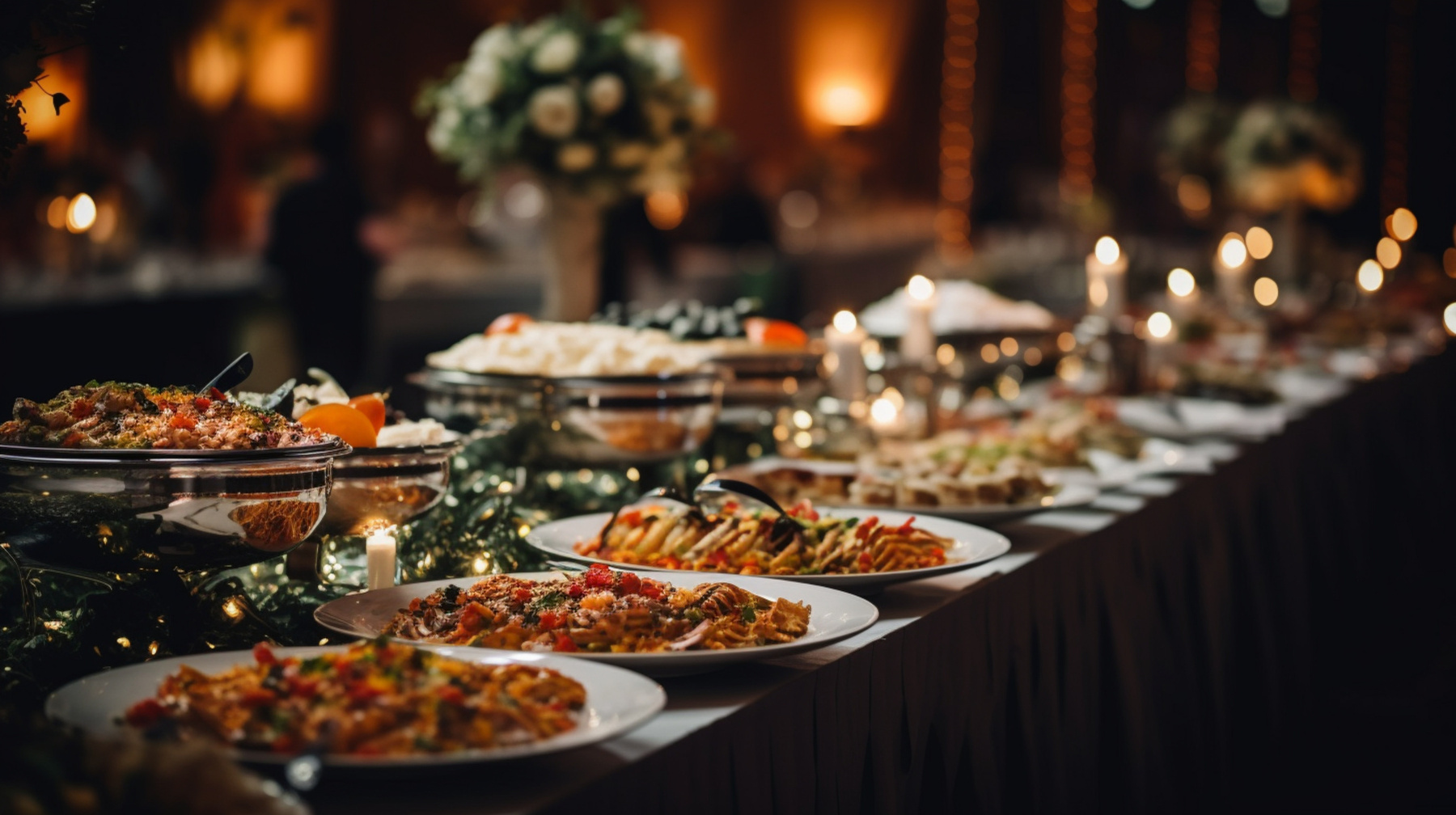
Typically, Indian catering services present two main styles: buffet and plated. Each style has its own unique advantages and considerations. A buffet-style catering provides a diverse range of dishes offering flexibility and cost-effectiveness. Guests can select their preferred dishes and portion sizes, making it a popular choice for larger events like weddings and corporate gatherings. But what happens when you desire a more formal dining setting?
Enter the plated catering service, a more formal and elegant dining choice, offering personalized service with pre-selected menu items. This style is especially attractive for smaller, intimate events where a sophisticated dining experience is desired. However, keep in mind that the ideal choice hinges on your event’s unique needs and characteristics.
Buffet Style Catering
Buffet-style catering is characterized by its flexibility. Guests serve themselves from a variety of food options, making it a versatile dining experience perfect for larger groups or events where diversity in taste is key. This style may also offer a more cost-effective alternative to plated service, as it typically involves a reduced need for serving staff, making it a popular choice for Indian weddings.
But, as with anything, buffet-style catering has potential downsides. These include:
- Slower service due to lines
- Risk of food becoming cold, especially during larger events
- Food safety concerns as food might be left out at room temperature for extended periods
But don’t worry, these challenges can be effectively managed with proper planning and coordination with experienced Indian caterers.
Plated Service Catering
If you are looking for a more formal and elegant dining experience, plated service catering is your go-to style. In this service, guests are seated while the waitstaff serves each course of the meal to them individually. This style is best suited for weddings, formal events, and special occasions where a formal dining experience is preferred.
While plated service affords a regulated and possibly superior quality of food, exceptional presentation, and accurate portion sizes, it does have some limitations. These include the potential for chaos if the service flow is not well coordinated and usually a narrower menu as most variety is concentrated within the main course. However, with careful planning and coordination, these challenges can be effectively mitigated to ensure an unforgettable dining experience for your guests.
Choosing the Right Style for Your Event
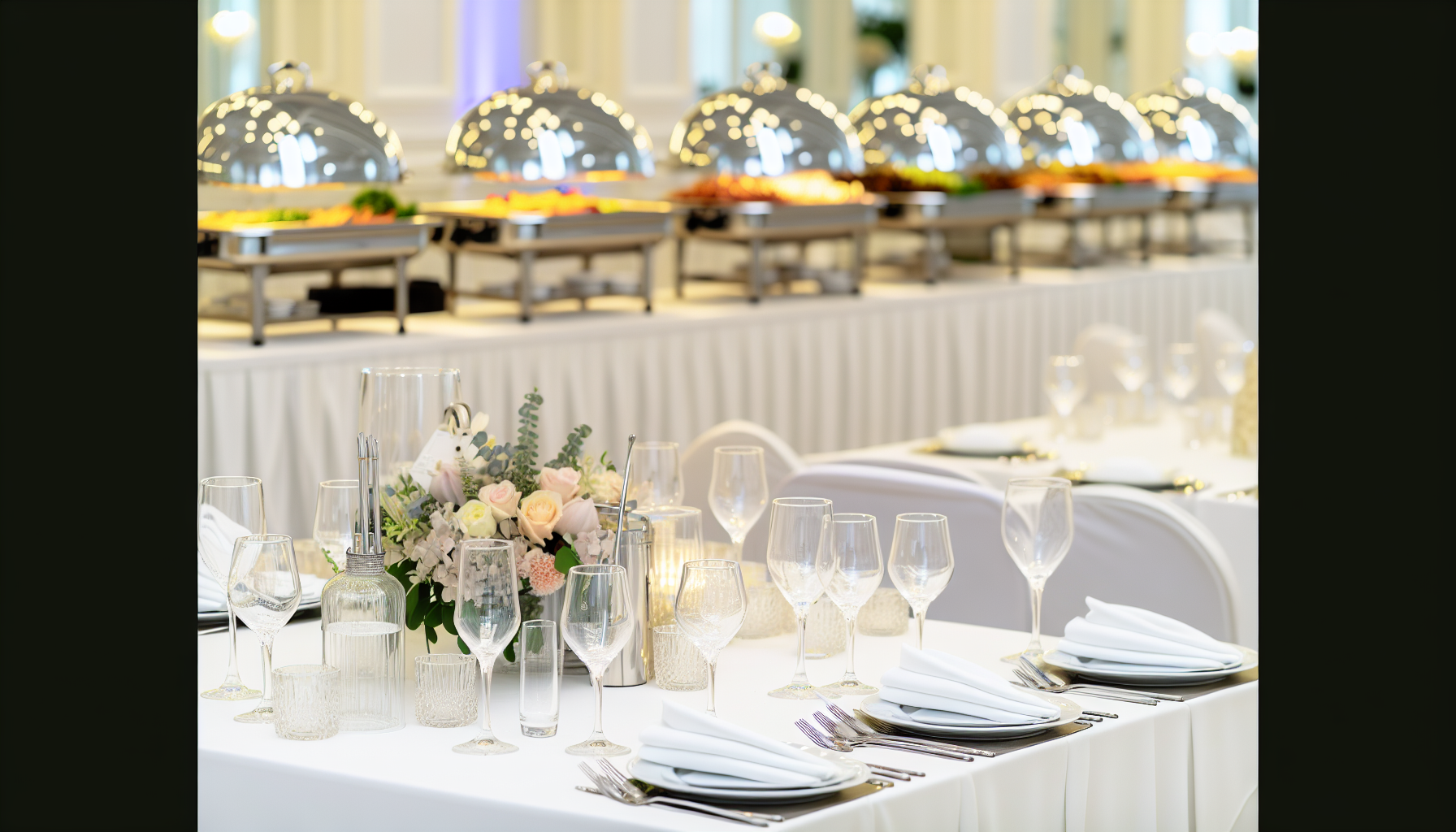
Deciding between buffet and plated catering requires considering factors like the event’s size and type. For weddings, the size of the wedding should guide the choice, with buffet catering being better suited for larger weddings and plated service ideal for smaller, intimate celebrations. Buffet catering offers a diverse range of dishes, allowing guests to tailor their plates to their liking. This approach encourages social interaction among attendees and is better suited for preparation, which can facilitate catering for a sizable number of guests.
On the other hand, plated service is a suitable choice for smaller, intimate weddings due to its ability to provide a sophisticated dining experience and its cost-effectiveness in terms of food and rentals, which creates an exclusive and special atmosphere for the guests. But how does this apply to corporate events? We’ll examine this next.
Weddings
When selecting a catering style for an Indian wedding, consideration should go beyond the size of the wedding. Elements such as the taste, presentation, aroma, texture, and overall appeal of the food, the caterer’s experience with weddings, and the ‘per head’ costs all come into play. Moreover, buffet catering is preferred for larger weddings due to its:
- Ability to allow guests to move around
- Wide range of dish options available
- Cost-effectiveness compared to sit-down meals
- The flexibility it offers in choosing food options
Regardless of the wedding size, it’s important to align the chosen catering style with the event’s overall theme and guest preferences. After all, you want your guests to remember your wedding as an event where not only love was in the air, but also enchanting aromas of delicious Indian dishes.
Corporate Events
Plated service catering is often recommended for formal corporate gatherings due to its ability to elevate the event with a formal and elegant ambience, creating a sophisticated and intimate atmosphere. But not all corporate events are formal; some are casual engagements where finger food and easily consumable Indian items are more suitable. Some examples of suitable finger food for casual corporate events include:
- Crispy filled pastries
- Grilled skewered chicken
- Pani puri
- Onion pakoras
- Potato pakoras
- Chicken kebabs
- Homemade chutneys
These options are sure to please your guests and create a relaxed and enjoyable atmosphere.
Whether formal or casual, Indian cuisine and catering are well-suited for corporate events, providing a diverse array of options for a variety of business gatherings. This versatility makes choosing an Indian catering companies a great choice for your next corporate event, especially when considering Indian catering in Sydney.
Customising Your Indian Catering Menu
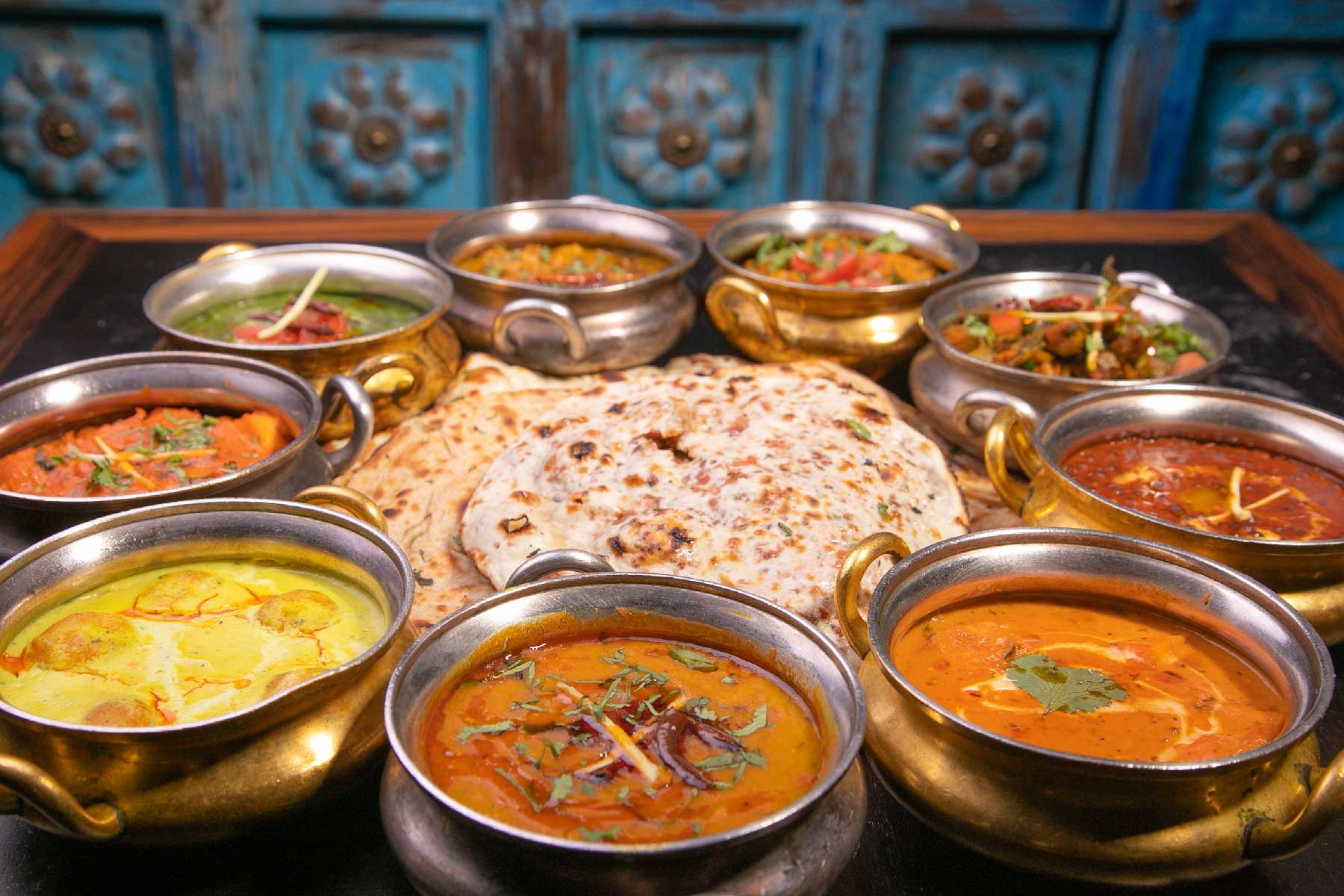
After choosing the catering style, the next step is to personalize your menu. To develop a diverse and innovative catering menu, it is important to blend century-old recipes with modern innovations to cater to the taste of all guests. Whether aiming for authentic Indian cuisine or a modern twist, Indian cuisine offers a plethora of options to choose from, including:
- Spicy curries
- Fragrant biryanis
- Tandoori dishes
- Flavorful chutneys and pickles
- Sweet desserts like gulab jamun and jalebi
By incorporating these fantastic food dishes into your menu, you can create a memorable dining experience for your guests.
Also, keep in mind not everyone appreciates spicy food. Therefore, one way to accommodate guests with milder palates is by including non-spicy Indian dishes such as butter chicken and korma on the menu. This ensures that everyone at your event gets to enjoy the rich flavours of Indian cuisine.
Vegetarian and Non-Vegetarian Options
Indian cuisine is renowned for its rich vegetarian offerings. To achieve a balanced catering menu with both vegetarian and non-vegetarian options, it is important to incorporate plant-based protein options for vegetarian or vegan guests and offer a diverse selection of vegetarian dishes that appeal to all guests. From succulent butter chicken to creamy palak paneer, the options are endless.
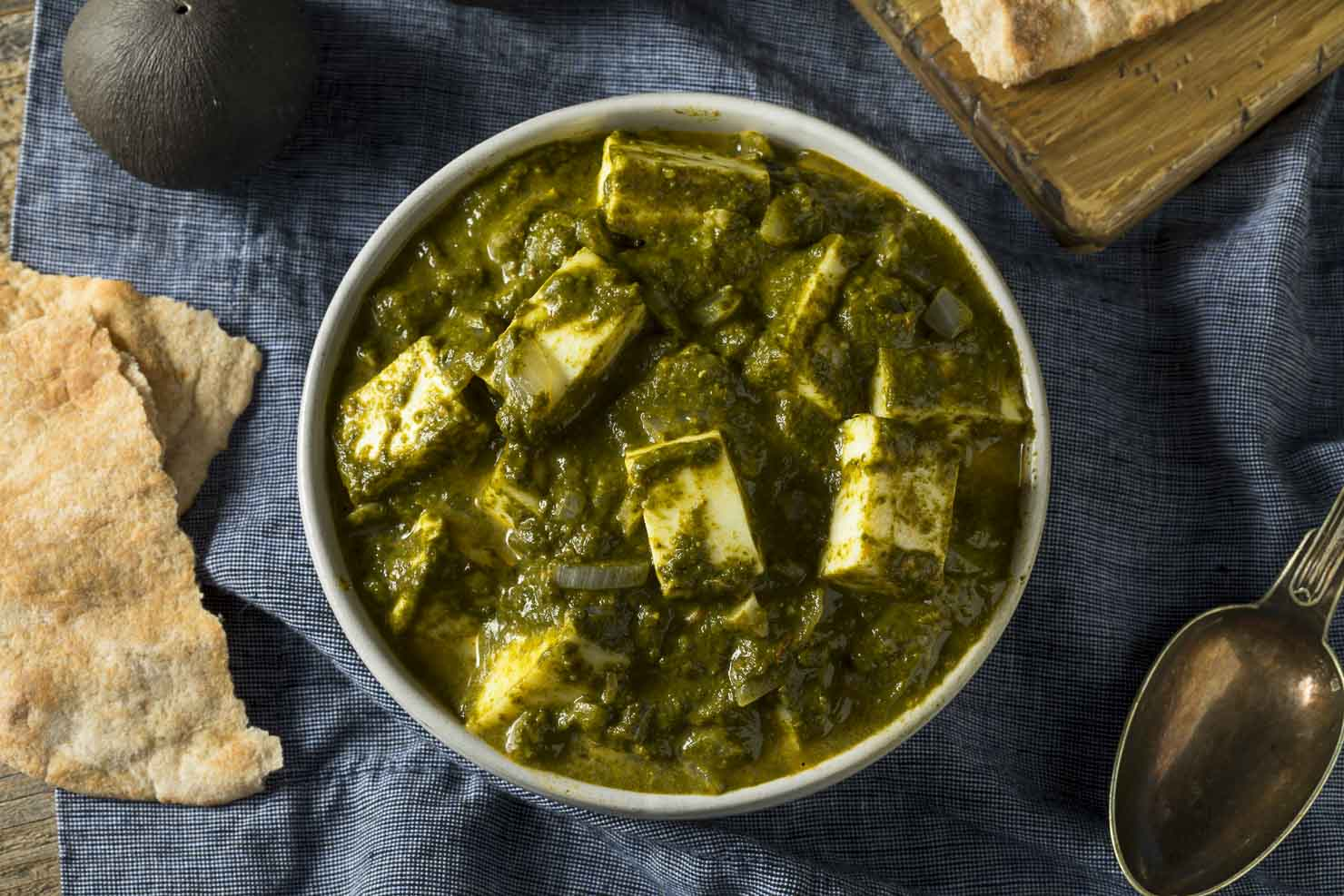
However, designing a vegetarian menu to appeal to a broad range of guests demands careful consideration. Here are some tips to keep in mind:
- Combine ‘wet’ dishes with dry ones to provide a variety of textures.
- Utilize a variety of spices to produce distinctive flavour profiles that appeal to various palates.
- Ensure a good balance of flavours in each dish.
- Experiment with different cooking techniques to enhance the taste and texture of vegetarian ingredients.
With the right balance of flavours and textures, your vegetarian menu can be just as mouth-watering as the non-vegetarian one.
Signature Dishes and Regional Specialities
The diversity of Indian cuisine is reflected in its signature dishes and regional specialities. From the savoury samosas of North India to the spicy biryani of the South, each region of India boasts unique flavours and cooking techniques that make its cuisine distinct. Including these signature dishes and regional specialities in your catering menu can offer your guests a unique and authentic dining experience.
Incorporating these dishes into your menu is a testament to the richness and diversity of Indian cuisine. The inclusion of these dishes not only ensures a diverse menu but also gives your guests a taste of the different culinary traditions of India. After all, Indian food is one of the best ways to explore a culture.
Factors to Consider When Hiring an Indian Caterer
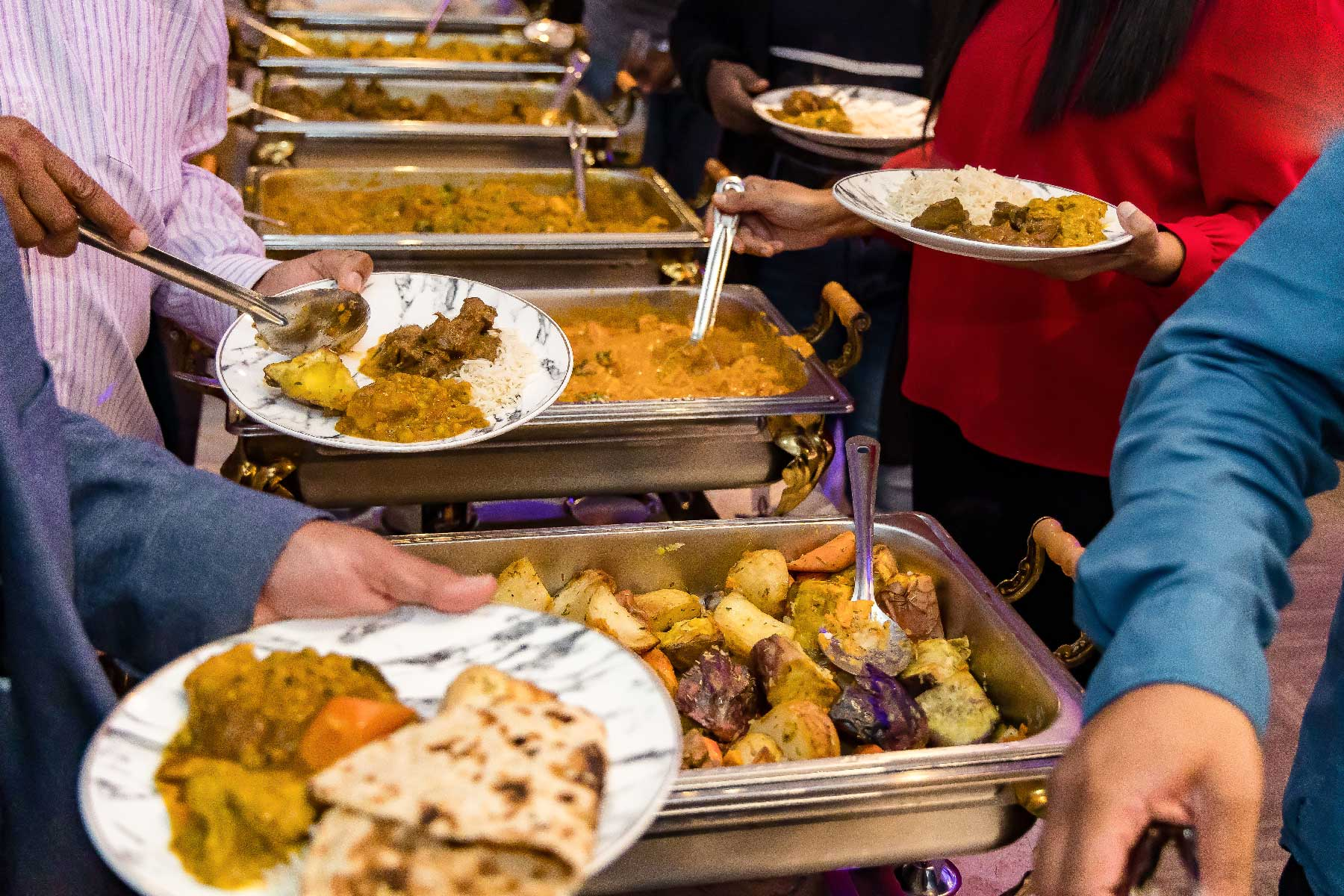
With a clear vision of the desired catering style and menu, the next step is to engage the right Indian caterer. The experience of an Indian caterer holds significant im
portance in the hiring decision, as it can have a substantial impact on the success of the event. Evaluating online reviews is an effective method for assessing the caterer’s reputation and experience.
Apart from the caterer’s experience, it’s important to confirm the Indian caterer’s certification from relevant authorities, indicating a valid license and compliance with health standards mandated by state or federal regulations. Additionally, many Indian caterers offer supplementary services like:
- Plating
- Staffing
- Table service
- Room Decoration
These services, provided by a catering company, play a crucial role in enhancing the event experience and should be factored in when choosing a caterer for catering in Sydney.
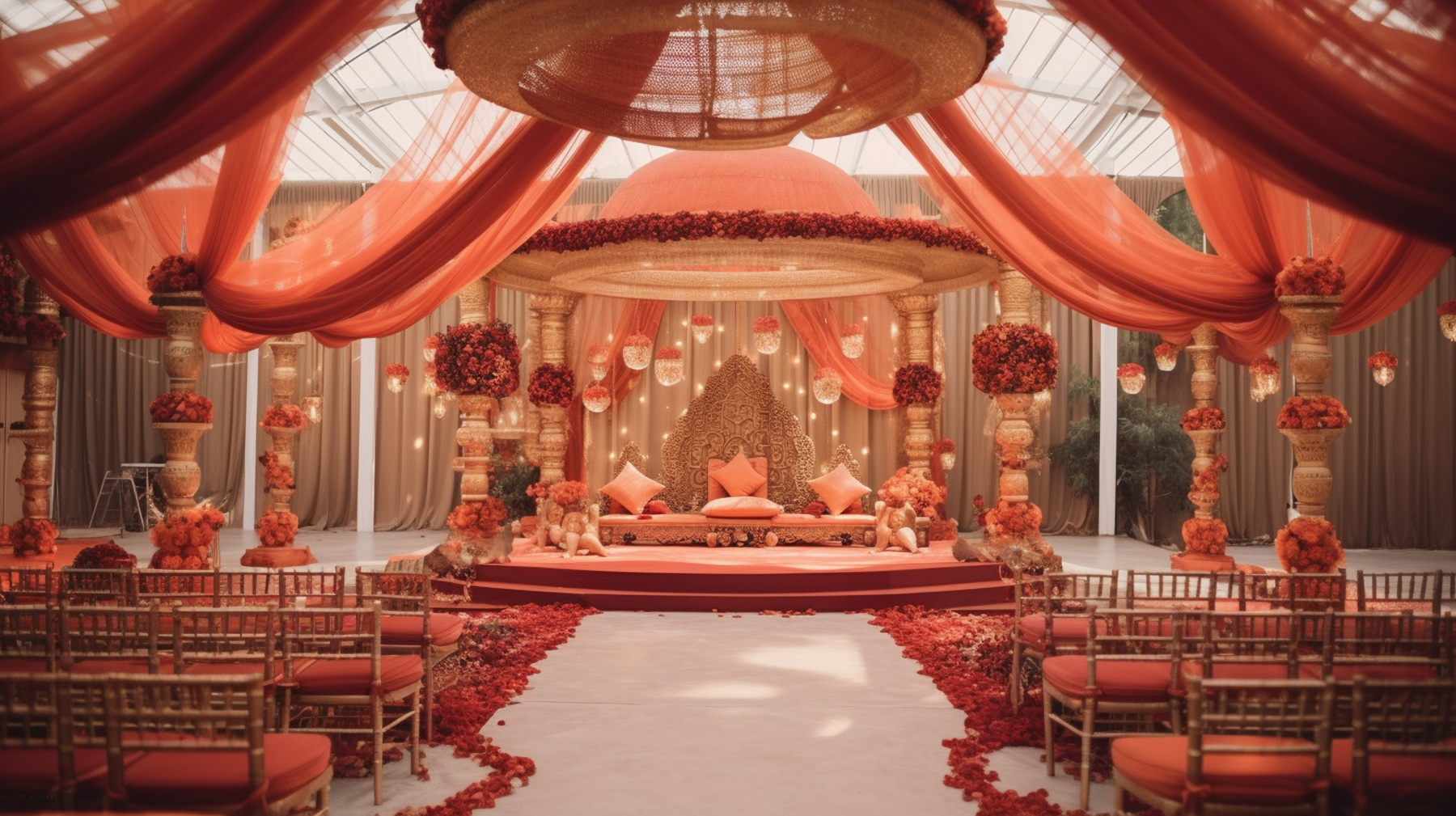
Tips for a Successful Indian-Catered Event
Having secured the right caterer, the subsequent step is to organize a successful Indian-catered event. Clear communication with the caterer and meticulous event budgeting are key components for success. Here are some recommended communication strategies when engaging with an Indian catering service:
- Define your goals and expectations.
- Review the caterer’s credentials and menu mastery.
- Schedule a walkthrough with the caterer.
- Sample their food before making a decision.
By following these strategies, you can ensure a successful Indian-catered event.
Budgeting is another significant aspect of orchestrating a successful event. Establishing clear objectives and prioritizing expenditures is vital when budgeting for an Indian-catered event. It is advisable to conduct thorough research and evaluate various catering services for their cost-effectiveness.
With meticulous planning and coordination, your next event catered by the best Indian caterers is bound to be unforgettable.
Raj’s Corner: A Top Choice for Indian Catering
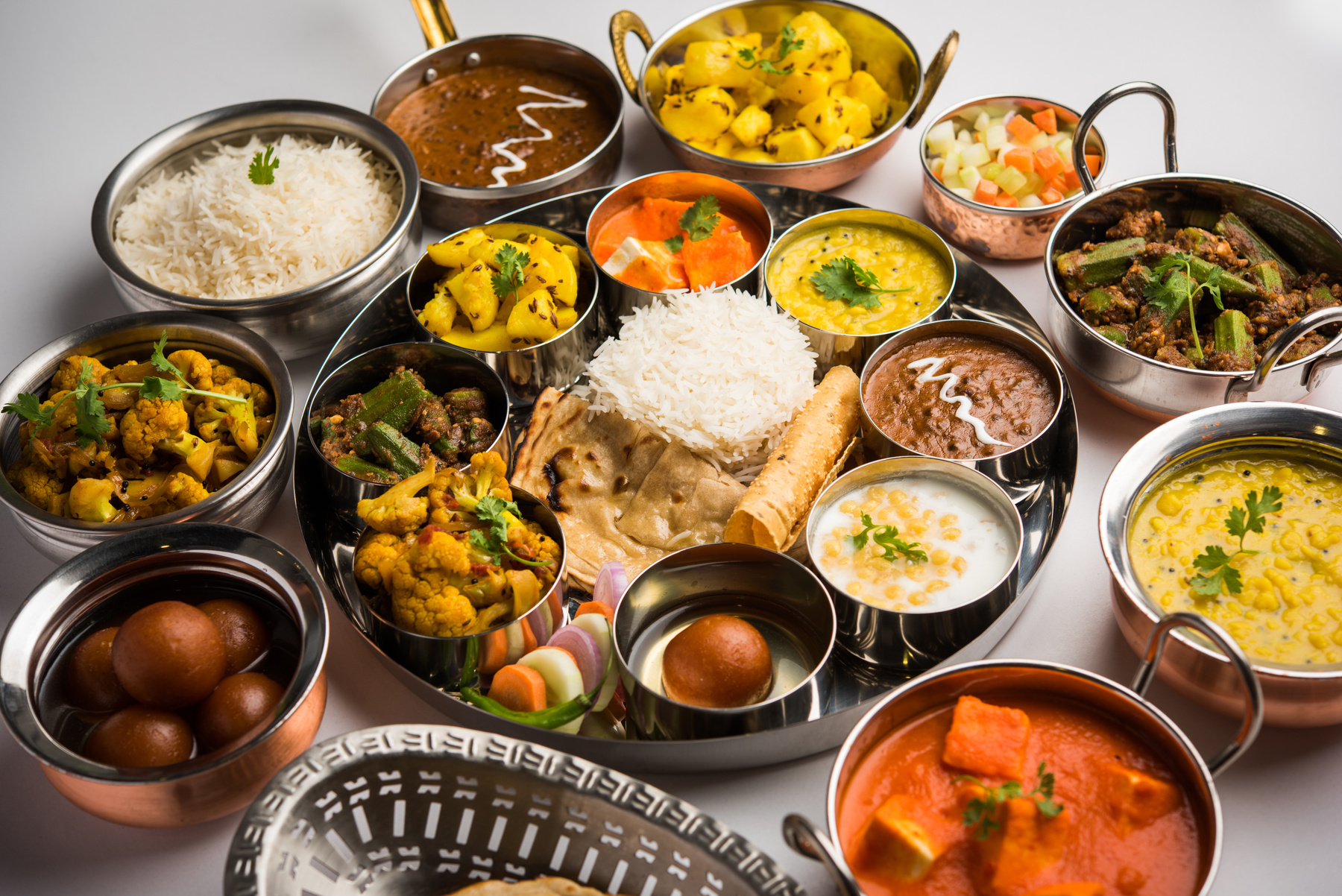
If you find yourself uncertain about where to start your search for an Indian caterers in Newcastle region, Raj’s Corner might be a good starting point. This catering service comes highly recommended for its Indian catering services. They’re able to provide their catering services at a range of locations including:
- homes
- halls
- outdoor venues
- function centers
- clubs/sports venues
With their expertise and commitment to quality, Raj’s Corner is the best Indian catering service for your needs.
Summary
Whether you’re planning a wedding, a corporate event, or a special celebration, the right Indian catering service can make all the difference. From choosing the right style (buffet or plated) to customising your Indian catering menu with vegetarian and non-vegetarian options, signature dishes, and regional specialities, careful planning and coordination can ensure a successful event. Keep in mind the factors to consider when hiring an Indian caterer and don’t forget the tips for a successful Indian-catered event. Remember, the goal is to provide your guests with a dining experience they won’t forget, and with the right caterer, like Raj’s Corner, you’re well on your way to achieving that.
Frequently Asked Questions
Is buffet more expensive than plated?
Buffet dinners are generally less expensive than plated meals, but pricing can vary between different catering companies. Consider setting a budget for your wedding catering to determine the best option for you.
What is the difference between pre-plated and buffet?
The main difference between pre-plated and buffet service lies in the presentation – buffet allows guests to serve themselves from a variety of dishes. In contrast, pre-plated meals are served directly to the table. Choose based on the desired dining experience.
Why is Buffet better?
Buffets are better because they offer a variety of choices for guests and accommodate different dietary restrictions, making it easier and more cost-effective to cater to everyone’s needs. Additionally, this service style encourages mingling and interaction among guests.
What is the best Indian food for events?
For your next event, consider serving Butter Chicken, Biryani, Samosas, Palak Paneer, and Gulab Jamun as these are the top 5 must-have dishes in Indian catering, loved for their unique flavours, textures, and ingredients. Make your event a hit with these crowd-pleasing options.
What factors should I consider when choosing a catering style for an Indian wedding?
When choosing a catering style for an Indian wedding, consider factors like taste, presentation, aroma, texture, overall appeal of the food, caterer’s experience with weddings, and ‘per head’ costs. These factors will help ensure a successful and enjoyable dining experience for your guests.

